GIVING BACK AND TRANSFORMING LIVES FOREVER
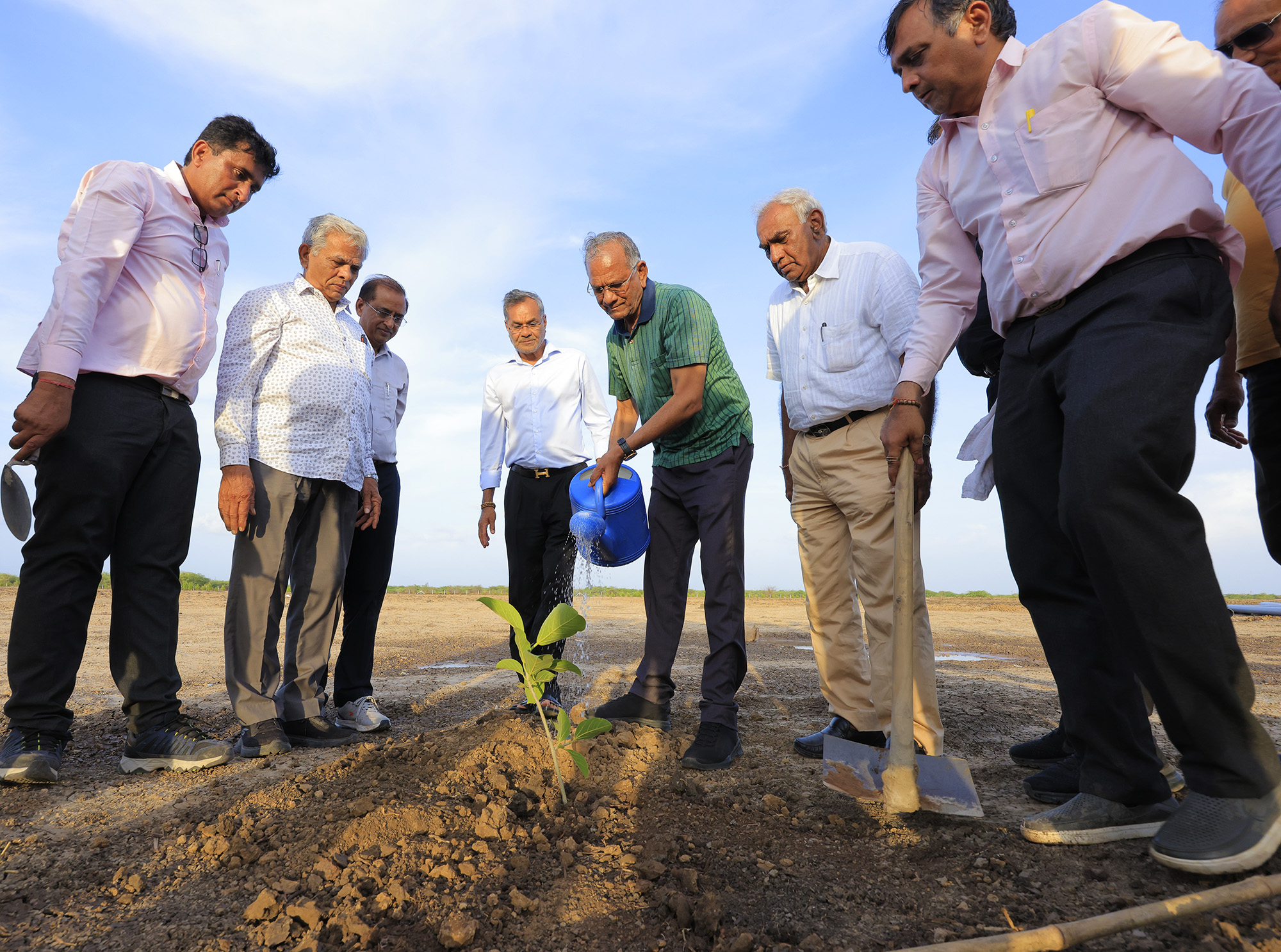
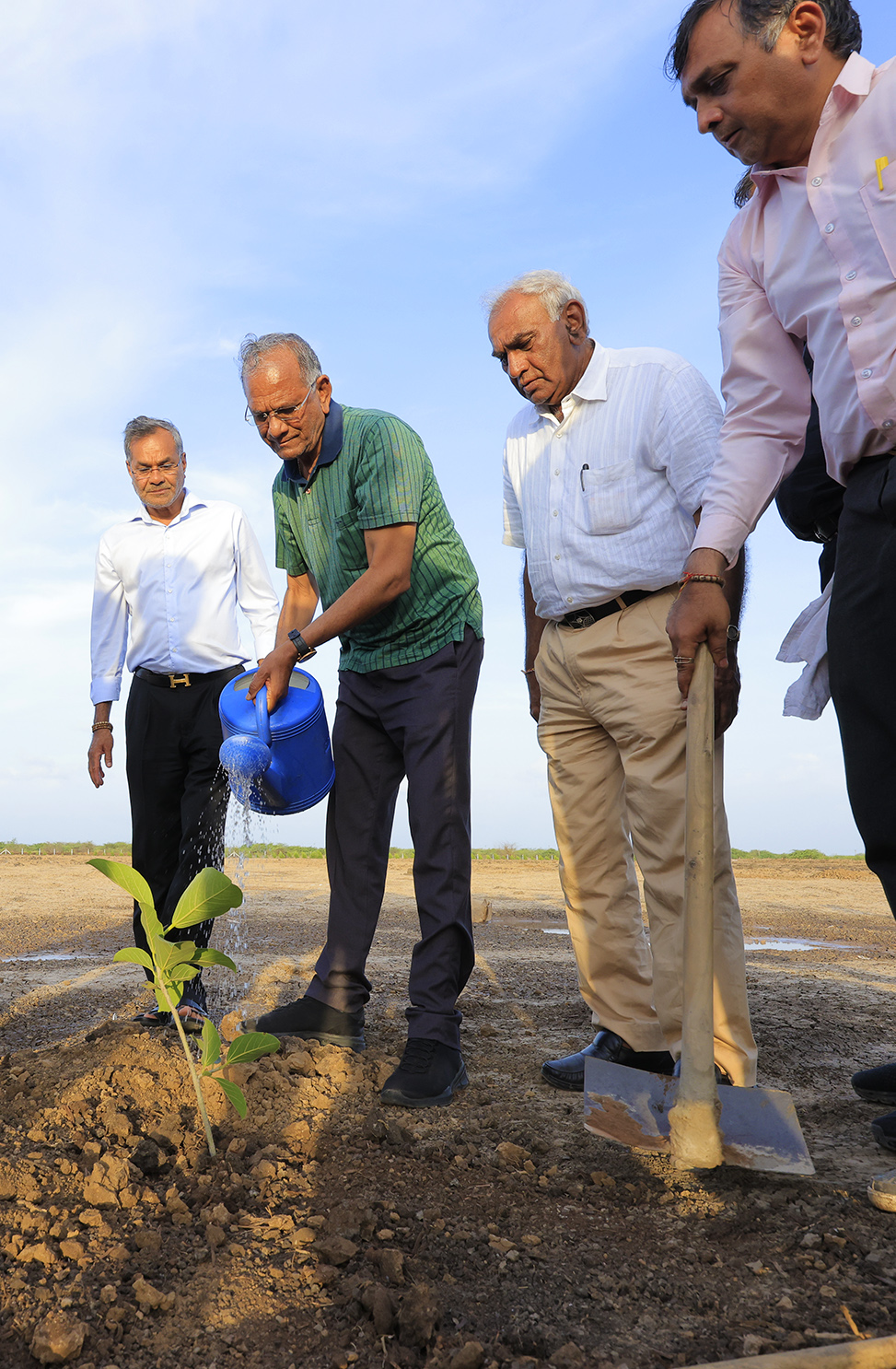
Responsible environmental management is a cardinal subject at Shree Ramkrishna Exports Pvt. Ltd. (SRK). Society’s problems began when everything started turning into a concrete jungle, said its founder Shri Govind Dholakia, seen here watering a newly-planted sapling along with company executives.
In August 2014, in a countrywide address delivered just months after being elected to his first term as prime minister of India, Narendra Modi promised to provide electricity to all the nation’s villages within 1,000 days. “The country can’t wait any longer,” he stated. At the start of that year, still 15 percent of Indian towns and villages did not have any access to a power grid.
Less than four years later, Modi declared that the goal had been met, reporting that that every single village of India now had access to electricity. “The lives of many would be transformed forever,” he said.
It was an impressive achievement indeed, but it still did not mean that every Indian was able to plug into a electric socket – for a village was formally considered electrified if only 10 percent of the households in it were hooked up to the grid.
But a diamond company, Shree Ramkrishna Exports Pvt. Ltd. (SRK), decided to take a more absolutist approach. It started its project in Dudhala, a small village in the Amreli district of Gujarat, where its chairman and founder had grown up.
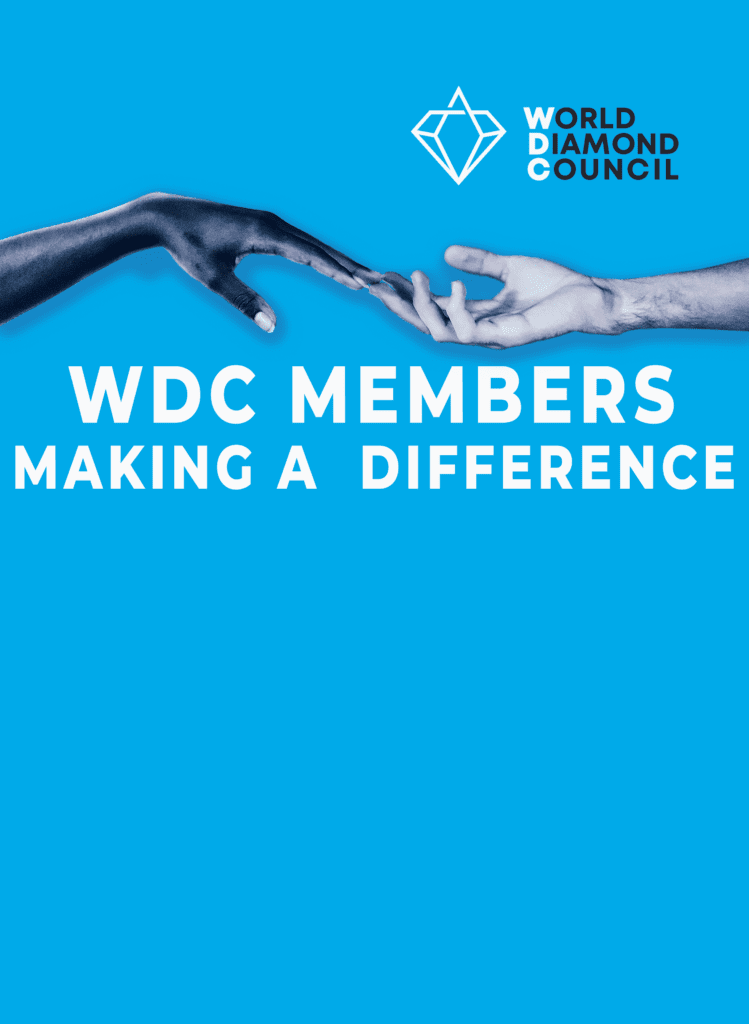
Creating a smart village
Shri Govind Dholakia, fondly known as Govindkaka, was born into a farming family before moving to Surat in 1964. There, at age 13, he began his career as a diamond bruter. In 1970 he set up his own diamond crafting company with two partners, Bhagwanbhai Patel and Virjibhai Godhani. It would evolve into the SRK Group, one of India’s leading natural diamond suppliers, and an enterprise that today employs more than 6,000 people.
But he remained emotionally connected to Dudhala, often recalling the fun he would have with his friends, as they walked to and from school in the nearby village of Lathi.
In March 2022, Govindkaka decided to journey to Dudhala to spend quality time with his fellow villagers. He wanted to thank them for the selfless love they had shown him, in what he insisted would be a non-transactional way. His entire family joined him in organizing an event that became called “Vatan nu Vhal,” meaning “Love for the Homeland” or “Tribute to the Homeland.”
It was then, in the company of hundreds of local residents, Govindkaka declared his intention to transform Dudhala into a “smart village,” which would be powered by green energy and be digitally connected.
The solarization of the village began shortly afterwards, and involved the installation of solar panels on the roof of each of Dudhala’s 350 houses. The project was completed in just four months.
In August 2022 residents of Dudhala stopped paying electricity bills, and they would not need to do so for the next 25 years. And because the solar power was renewable, nature benefitted at the same time.
The company originally had planned to end the project after Dudhala was fully solarized, but the following year it instead decided to expand it, as part of the celebration of India’s 75 years of Independence.
“We thought of doing our bit for 750 martyrs and unsung heroes, including the soldiers who guard our borders,” a company spokesperson said. “Since August 2022, we have solarized approximately 150 houses, all in different locations. It’s been a time consuming-process, but worth the effort.
SRK also extended the initiative by solarizing homes of some 1,000 members of its own organization. To date it has invested some U.S. $3.5 million in solar projects.
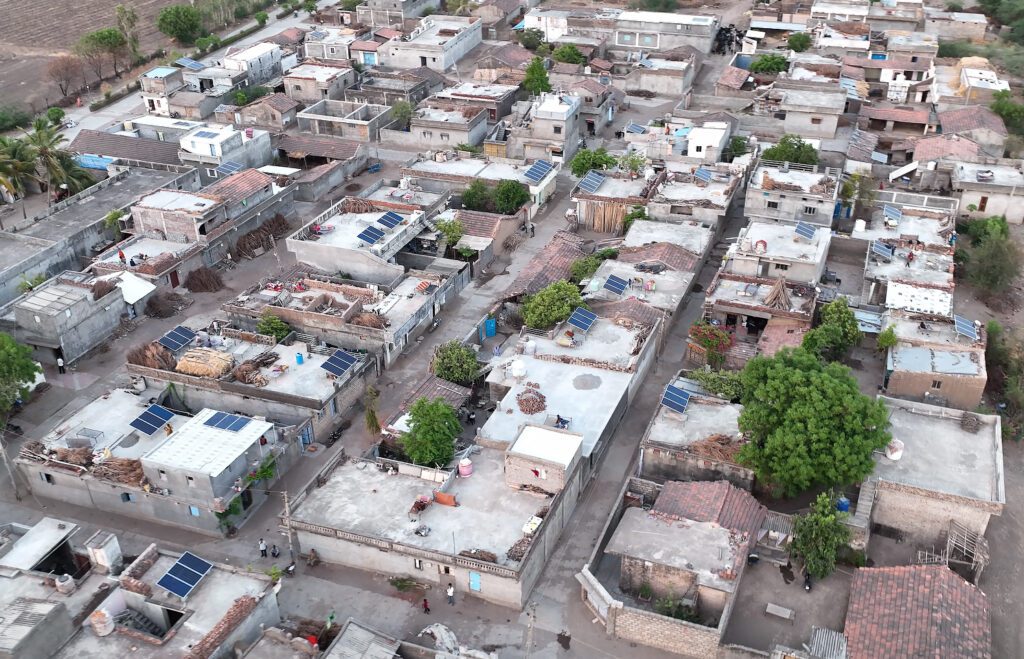
Solar panels fitted on the roofs of houses in the village of Dudhala courtesy of SRK, freeing the residents from paying for electrical power through to 2047.
The goal of net-zero carbon emissions
Responsible environmental management has become a cardinal subject at SRK. The problem began when everything started turning into a concrete jungle, Govindkaka once said, noting that in a pre-industrial age sustainability was organic, and remaining sustainable just required taking proper care of what God had provided.
The company has committed to achieving net-zero carbon emissions for both of its primary diamond crafting facilities by the end of 2024. The facilities are certified by the U.S. Green Building Council (USGBC) as meeting LEED Platinum standards, which are the highest rating issued by the organization for the design, construction, operation and maintenance of environmentally responsible buildings, homes and neighborhoods.
SRK is also the first natural diamond crafting company in the world to join the Science Based Targets Initiative (SBTi), which is a collaboration begun in 2015 between the CDP (Carbon Disclosure Project), the United Nations Global Compact, the World Resources Institute (WRI) and the World Wide Fund for Nature (WWF). It aims to help companies to set emission reduction targets in line with climate sciences and the Paris Agreement goals. In October 2021, SBTi developed and launched the world’s first net zero standard, providing the framework and tools for companies to set science-based net zero targets and limit global temperatures from rising above pre-industrial levels to 1.5 °C. It also defines best practices for companies to adopt transition plans covering Scope 1, 2 and 3 emissions.
SRK considers decarbonization as being the crown jewel of its program, and has officially assessed its Scope 1, 2, and 3 emissions to properly develop a robust and detailed roadmap for significant reduction in each category.
For Scope 2 reductions, SRK has installed an off-site 6 MW solar power plant to mitigate its entire Scope 1 and 2 emissions.
The company, which holds the largest number of ISO (International Organization for Standardization) in the diamond industry, has several related specifically to responsible environmental management. These include ISO 14001 for Environmental Management, which it attained in 2015, and ISO 50001 for Energy Management, which it was awarded in 2013.
What happens when you focus on people
In April 2024 SRK released its “Pure Impact Report”, detailing six decades of achievements by the company in education, healthcare, community, social welfare and environmental sustainability. This report not only highlighted the company’s pioneering work in these spaces, but also identified how its initiatives specifically align with the UN’s Sustainable Development Goals and the 2015 Paris Agreement.
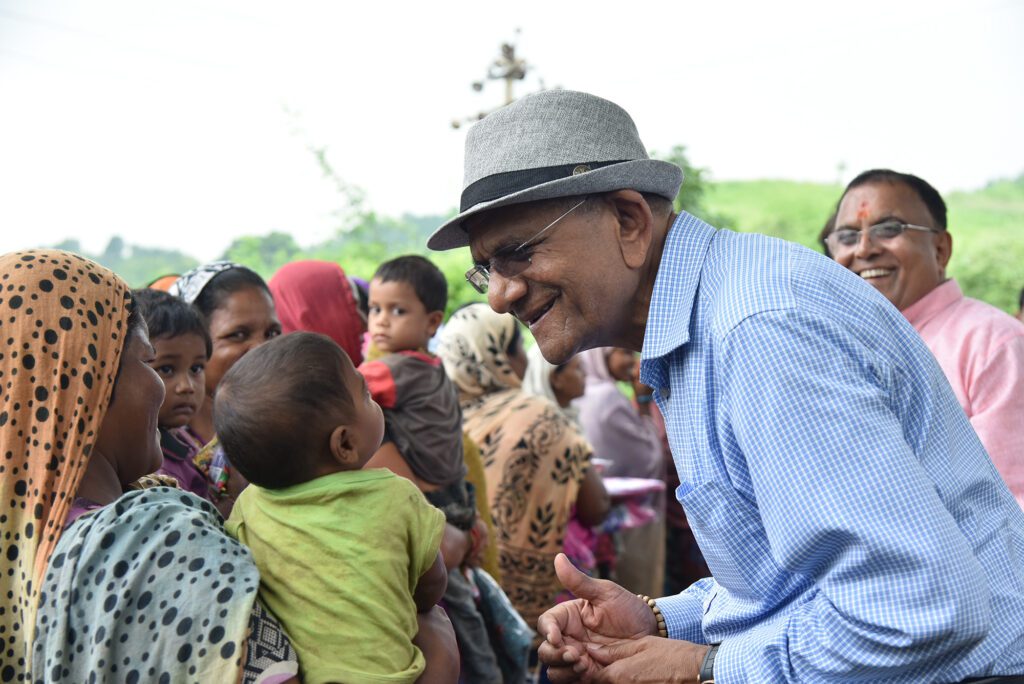
Govindkaka interacting with tribal people at the multi-specialty medical camp organized by SRK at Dang, Gujarat.
The SRK Group currently contributes about 4.5 percent of its average net profit towards various community welfare initiatives, some of that through its philanthropic arm, the SRK Knowledge Foundation (SRKKF), which is dedicated to creating world-class educational and knowledge institutes in the fields of science, technology, management, philosophy, entrepreneurship, and the humanities. To date about 60,000 young people have benefitted from its programs.
More than 2,500 have taken courses at its two authorized training centers, the SRK Institute of Skills, and the SRK Institute of Diamonds (SRKID). The latter provides professional training specifically for work in the diamond industry.
“What happens when you focus on your people, when you focus on putting back more into communities and into the planet than you have taken, is that profit inevitably follows,” explains Rahul Dholakia, a director at the foundation. “SRK’s stakeholders are supported by our increased commitments to socially responsible initiatives in recent years, and are particularly invested in the trajectory and acceleration of our net zero commitments.”
The health of the community
Community healthcare has also been a focus, starting more than 30 years ago when SRK began operating health camps for tribal people in the Dang district of southwestern Gujarat, in collaboration with the Nanduba Medical Centre of Surat. Over the decades, more than 10,000 people have benefited from those services.
In memory of his father, Govindkaka established a medical center in Lathi, the village to where he had gone to school. Since its inception, the facility had provided health services to some 1.2 million people, and also distributed meals to help the sick and poor.
During the COVID-19 pandemic, the medical center treated some 5,500 patients stricken with the virus. Quarantine facilities were established for asymptomatic and mildly symptomatic people, while 19 oxygen beds were acquired for a ward treating seriously ill patients. Mobile centers were also created for community testing.
In 2018, in honor of India’s 11th president, Dr. APJ Abdul Kalam, SRK helped launch the Kalam Health Project. It comprised one of the most extensive public health studies ever carried out in the country, collecting data from 112,000 people who were required to undergo health checks. The results of the research were shared with the Indian Council of Medical Research, the Council for Scientific and Industrial Research, and state and national health policy authorities.
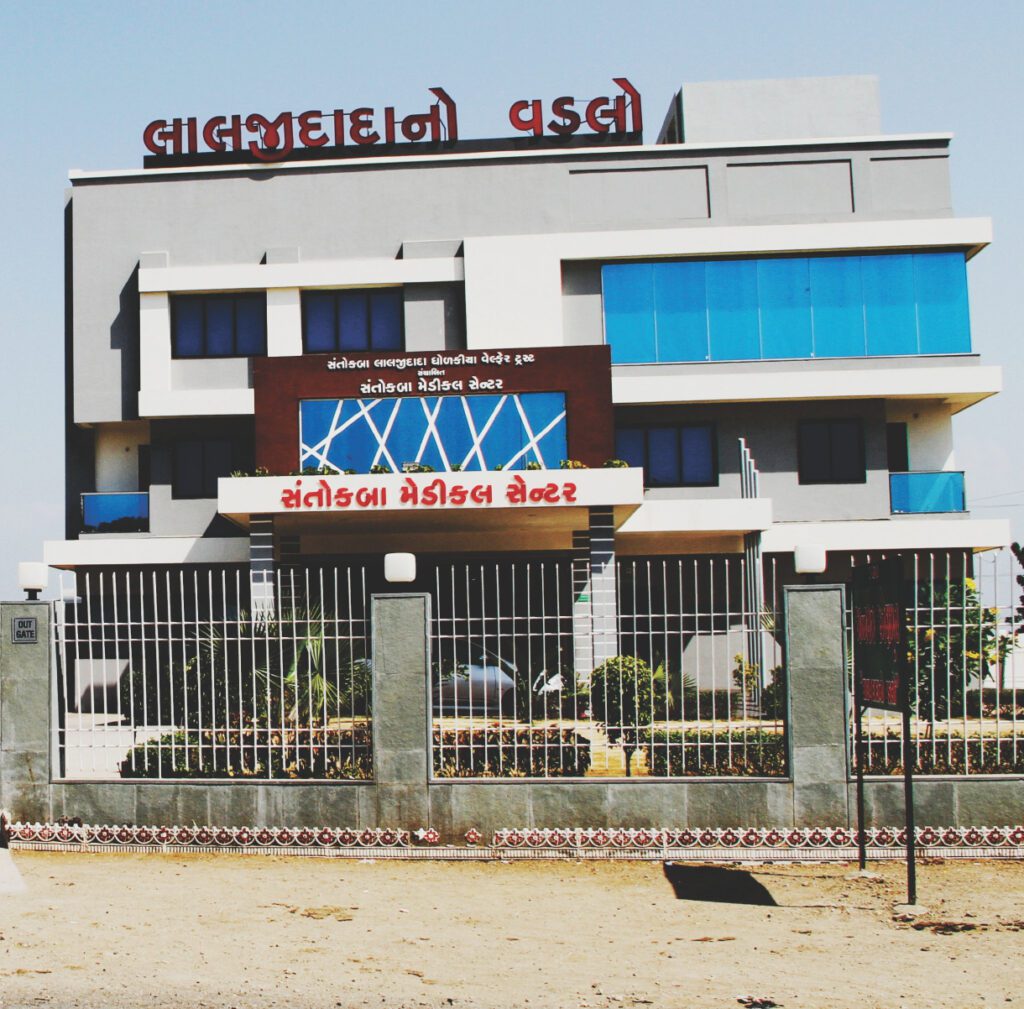
The Santokbaa Medical Center, built by SRK at Laljidaba No Vadio in Lathi, where Govindkaka had attended school.
‘A source of inspiration’
In April 2022, Penguin Enterprises released a book called “Diamonds are Forever, so are Morals.” It was the rags to riches story told by Govindkaka to authors Arun Tiwari and Kamlesh Yagnik.
“It was a joy revisiting a substantial part of my life, struggles and professional journey through this book,” he later told the Indian Express. “Each one of us has different life experiences that shape our present and future, and through this book I wanted to share my life experiences with all to be reassured that a life of honesty and ethics helps achieve great success and gives immense satisfaction.”
The book, which focused on Govindkaka’s sense of social responsibility, as it did on his business career, was endorsed by no less than the country’s prime minister, who called it a “source of inspiration” for coming generations.
Govindkaka considers the gemstone around which he built his life’s journey a special source of inspiration. “I believe the world is like a diamond – a tough place to live in, but also inherently beautiful” he stated. “In order to uncover its beauty, we need to work slowly, consistently with responsibility and goodwill.”
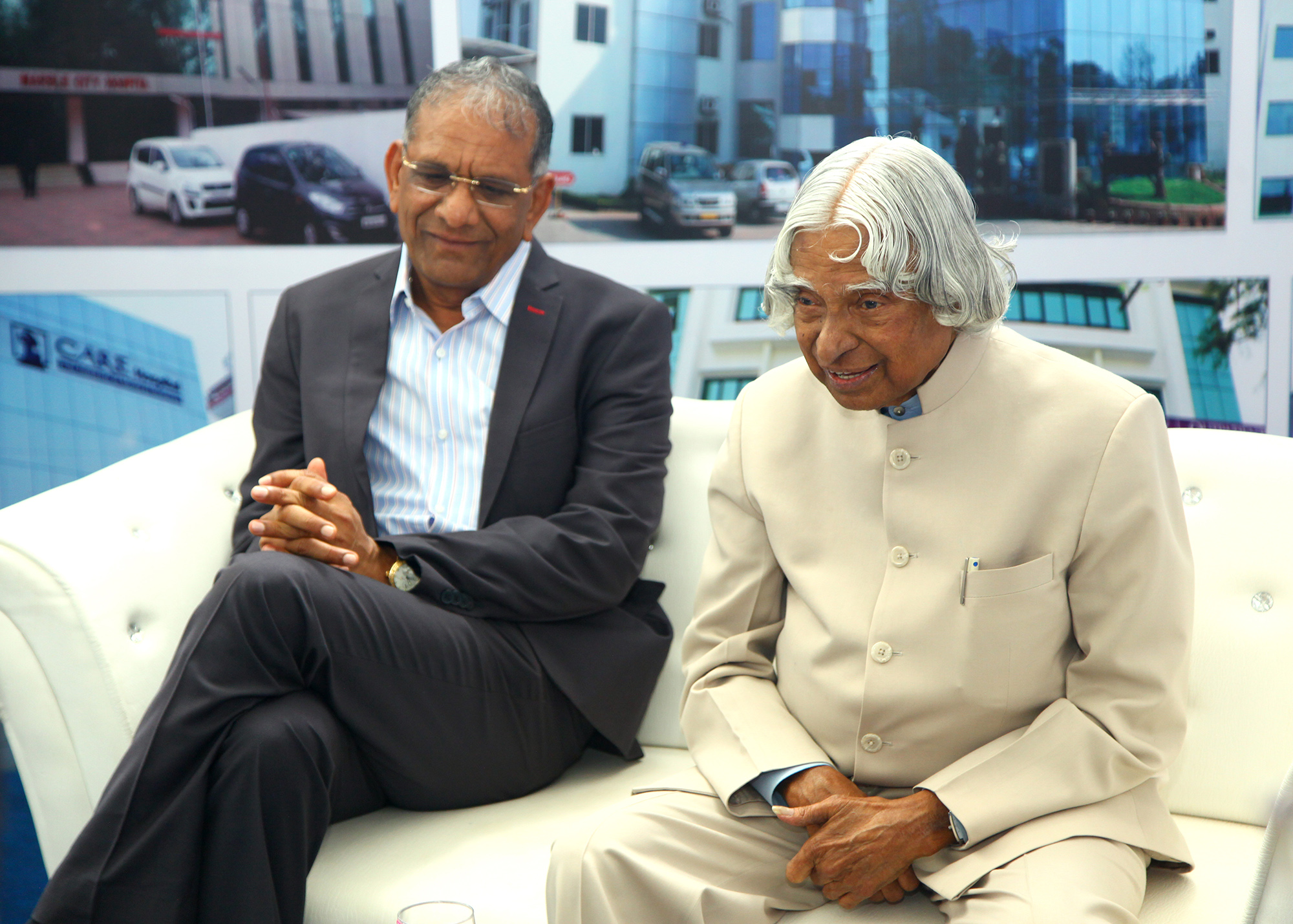
Govindkaka (left) with India’s 11th president, Dr. APJ Abdul KalamIn, in whose honor SRK helped launch the Kalam Health Project. It comprised one of the most extensive public health studies ever undertaken in the country, collecting data from 112,000 people.






